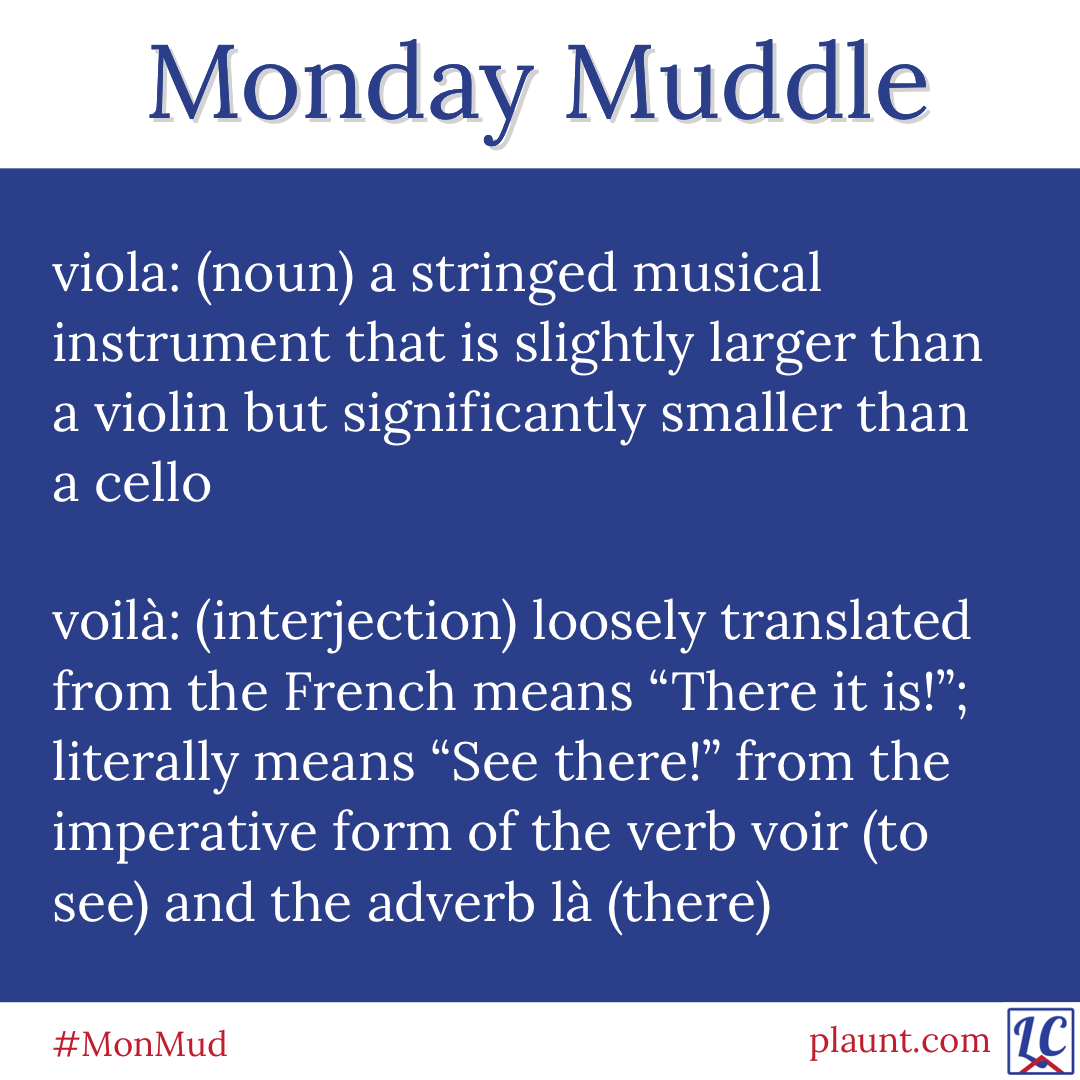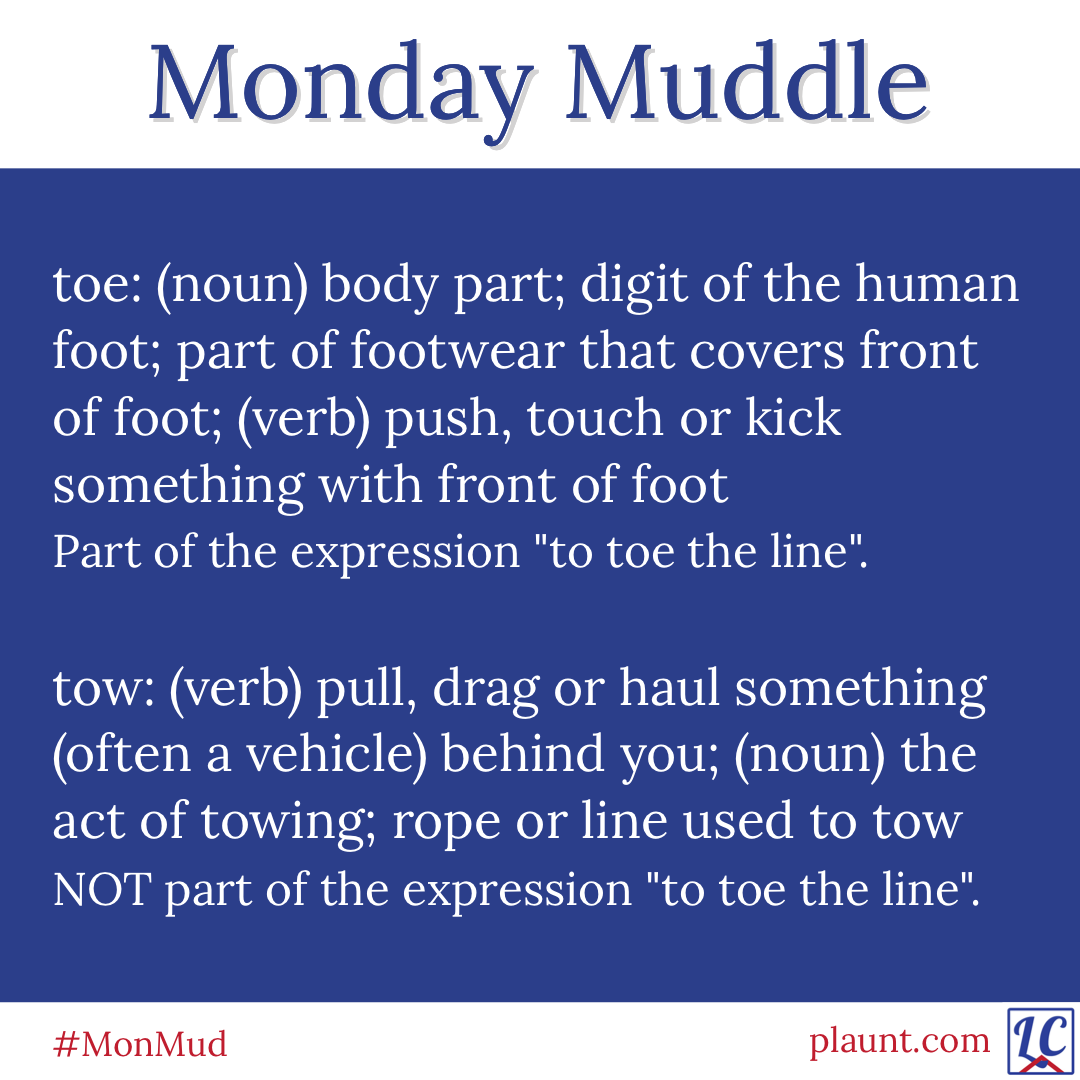For a weekly dose of language-based humour, visit my Facebook page at https://facebook.com/lcplauntMEd
Thursday Thought #RonaldJosephKule

Wednesday Writing

Tuesday Two
Write a story with only two sentences. Use the photo for inspiration if you wish.
Photo by Hamsik Ghazaryan Olson on Unsplash.

Monday Muddle: viola, voilà
“Voilà is used in English to call attention to something, or to present some kind of accomplishment. For example, if you worked all day to plant a beautiful garden, you might present it to the rest of your family with a sweeping arm gesture and an enthusiastic “voilà!” “Viola” clearly doesn’t make sense in this context, but at least senseless violas are better than senseless violins.
“Voilà” is also frequently misspelled in ways that don’t confuse it with another word (but do indicate a mispronunciation). I’ve seen it as wala, wa-lah, wah-lah, and similar variations. Still spelled wrong, but perhaps not as confusing. If you have trouble remembering how to spell “voilà”, remember that it Very Often Isn’t Lettered Accurately.

Language Laughs
For a weekly dose of language-based humour, visit my Facebook page at https://facebook.com/lcplauntMEd
Thursday Thought #SteveJobs

Wednesday Writing
Do you still keep physical copies of reference works nearby while you write, or do you rely solely on Internet sources? Maybe some of each? What are your favourites?

Tuesday Two
Write a story with only two sentences. Use the photo for inspiration if you wish.
Photo by Chronis Yan on Unsplash.

Monday Muddle: toe, tow
“To toe the line” figuratively means to conform, submit to authority, obey the rules. The expression started out literally meaning to put your toes against a marked line. It has been used in the discipline of sailors and in sporting events with a starting line among other things. It dates from the 1800s, when “to toe the mark” was also a common expression.
“To tow the line” is not a common expression, but it would mean to drag a rope or something similar behind you.

